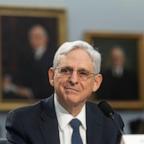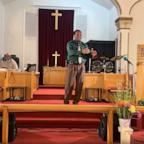Goldman profit tops forecasts; bank eyes TARP repayment
— -- The bank said it will use proceeds from the common stock offering plus "additional resources" to redeem the $10 billion it got from the U.S. Treasury's Troubled Asset Relief Program, or TARP.
Goldman said it earned $1.81 billion, or $3.39 a share, in the first quarter as a surge in trading revenue outweighed asset write-downs, beating the $1.64 a share analysts had expected.
CEO Lloyd Blankfein, 54, is raising money to shore up finances and repay government money it got in October after the bankruptcy of Lehman Bros. Goldman, the No. 6 U.S. bank by assets, was the most-profitable Wall Street firm before converting to a bank last year and posting its first quarterly loss since it went public in 1999.
"The only toxic thing on their balance sheet is the TARP, and they want to get rid of that as soon as they can," says Gary Townsend, president of Hill-Townsend Capital. The earnings show "they're taking enormous market share away from virtually everyone else."
First-quarter revenue was $9.43 billion. Fixed-income trading revenue was a record $6.56 billion, up 34% from its previous record, as client-driven income outweighed an $800 million loss on commercial mortgage loans, excluding hedges.
Goldman benefited as the gap between what banks pay to buy fixed-income securities and the price at which they sell, the so-called bid-ask spread, almost doubled to 19 basis points in six months, according to data compiled by Bloomberg.
Goldman raised $5.75 billion by selling shares at $123 apiece in September in an offering that started after the company announced that Warren Buffett's Berkshire Hathaway bought $5 billion in preferred stock.
A month later, Goldman was among nine financial institutions that shared $125 billion in the first payments from TARP.
"A stock sale would be a good thing for the government; it would be a good thing for Goldman Sachs or any other bank which was able to do it, especially if they were also able to repay the TARP," says Roy Smith, finance professor at New York University's Stern School of Business and a former Goldman partner.




